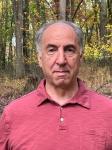My Nonprofit Reviews

JimWeiss
Review for The Stiff Person Syndrome Research Foundation Inc, Bethesda, MD, USA
My son Michael was diagnosed with Stiff Person Syndrome when he was just 12 years old. Michael spent over 7 months in an academic medical center hospital with lots of medical experts trying to get to the correct diagnosis and treatment. I am a kidney doctor, retired about a year ago. All I knew about SPS could have been summarized in two short sentences.
When Michael was diagnosed I quickly started learning about this obscure rare illness. Information about the illness was filled with disappointment, fear, and frustration. The etiology is not certain, the treatments are only sometimes helpful, and there is no cure. In addition, there are very limited funds for SPS research. In part that is because SPS is one of about 10,000 rare diseases. However in total there are 25 - 30 million people in this country with a rare disease. That does not include all the family members that are so often deeply impacted by their loved one having a rare and difficult illness. So limited treatments and very limited research.
Michael's course has been plenty difficult with many days filled with muscle spasms and pain, and lots of nasty weeks and months. My wife, who is also a physician, and I knew that we could find ways to help support progress in the care of SPS patients. I learned about the SPSRF in 2021 and have been fully engaged since. In such a small and new organization we have multiple roles though mostly I serve on the Board and separately chair the Medical Advisory Board (MAB). We are fortunate to have three leading SPS physician experts who have joined the MAB.
I describe the SPSRF as a seedling being so new, though rapidly growing with increasing infrastructure, lots of nurturing from a very committed core group, and the recipient of a crucial grant from the Chan Zuckerberg Initiative. We have so much to accomplish and the sooner the better. Supporting research, promoting awareness of the disease in the medical community, and helping bring the SPS community together especially through education are just a start. We will be launching a crucial patient registry which will provide vital information about people with SPS who might be willing to participate in research studies.
Doing this work has become the focus of my retirement. The progress is so slow though the little pieces add up and we are definitely further along than a year ago. Michael is a junior in college and has found ways to manage with his pain and SPS. Hopefully this work will contribute to more successful treatments and a cure.

